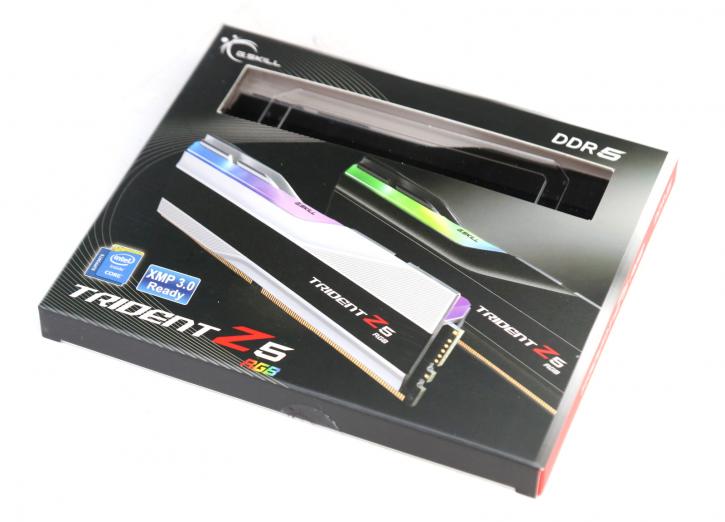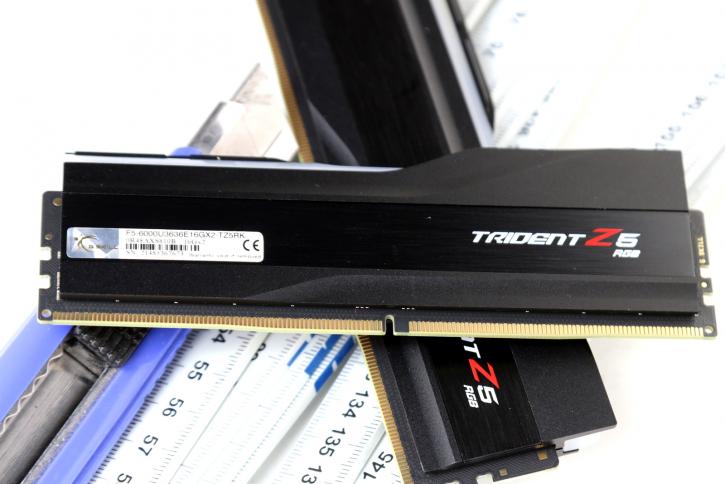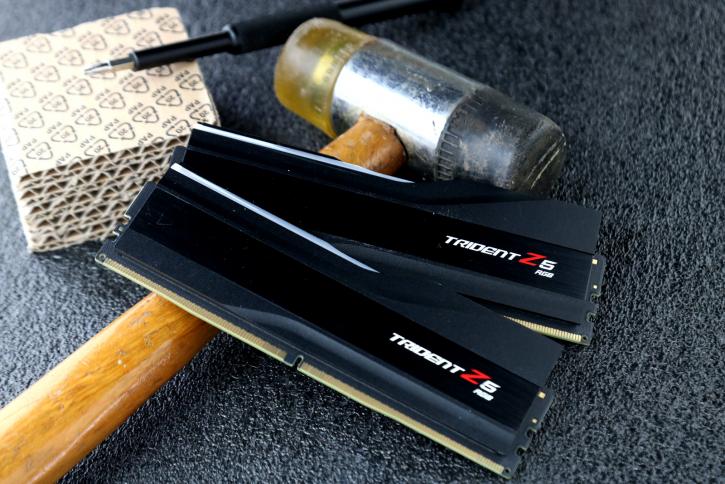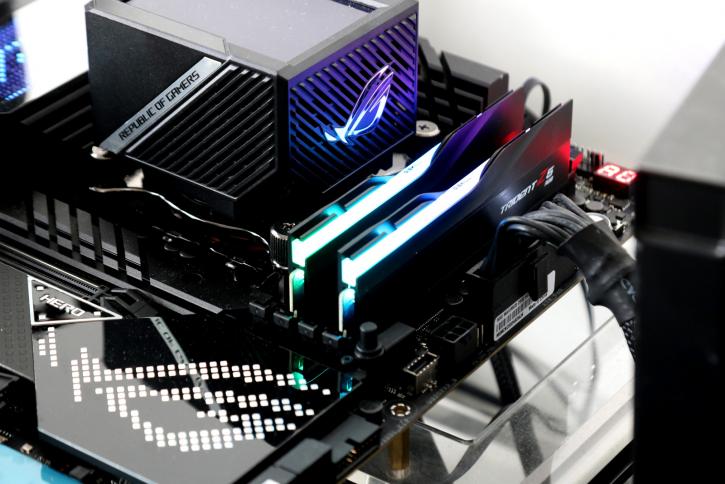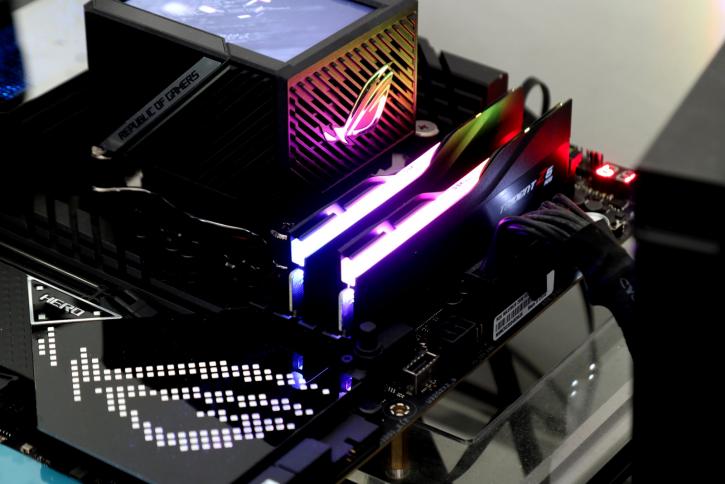Product Showcase
Product Showcase
It's as basic as that — we start with packaging so you know what to look for in the stores, and then we move on to everything else.
Here we have the DIMMs after unpacking. These are 32 GB (2x16GB) 60000 MHz DIMMs in a kit, cool that the PCB is black as most motherboards have a black PCB as well these days. Intel XMP version 2.0 if of course supported.
As you might have noticed from that sticker, this kit can manage latencies of CL36-36-36-76 at 1.30 Volts, and that fast latency for this type of memory (DDR5) alright. For optimal stability we do recommend you stick to the manufacturer suggested settings at default SPD or that preconfigured XMP profile.
We appreciate the black PCB and the shiny heat spreader; this is a really beautiful kit both aesthetically and in terms of styling (hey, it matters in a high-end stylish looking system). The RGB LEDs are located in the top coating of the device. There will be no need to connect any cables because they will be fed out and over the DIMM slots themselves. As is typically the case with pricey memory, G.skill includes a limited lifetime warranty with these memory modules, which is hard to top.
We recommend 8GB as a bare minimum in a PC these days, 16GB for a little extra in your spicy gaming rig, 32GB for those who use memory-intensive applications / perform memory-intensive transcoding and/or content creation, and 64GB for those who have specific workloads and Ryzen Threadripper series 3000 processors. Starting with DDR5 the trend is shifting to 32GB for high-end and enthusiast-class PCs though.

